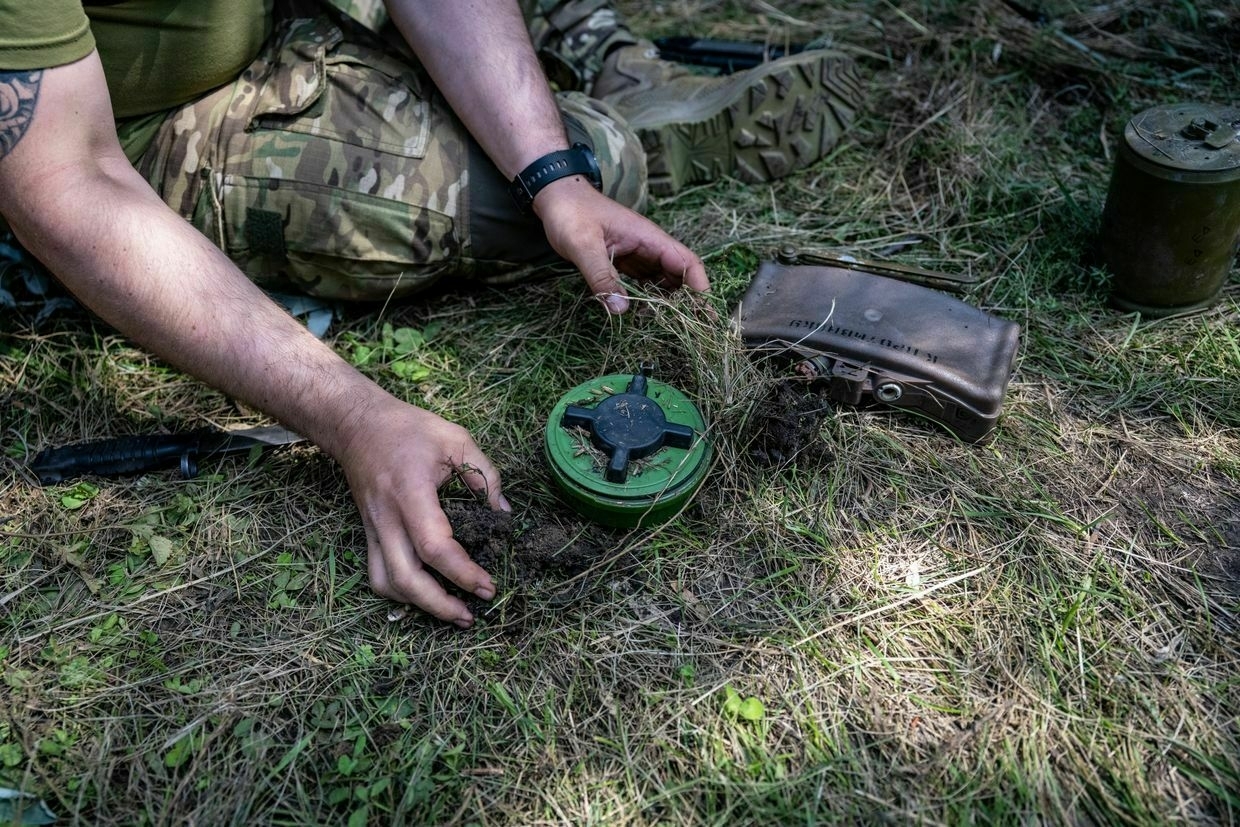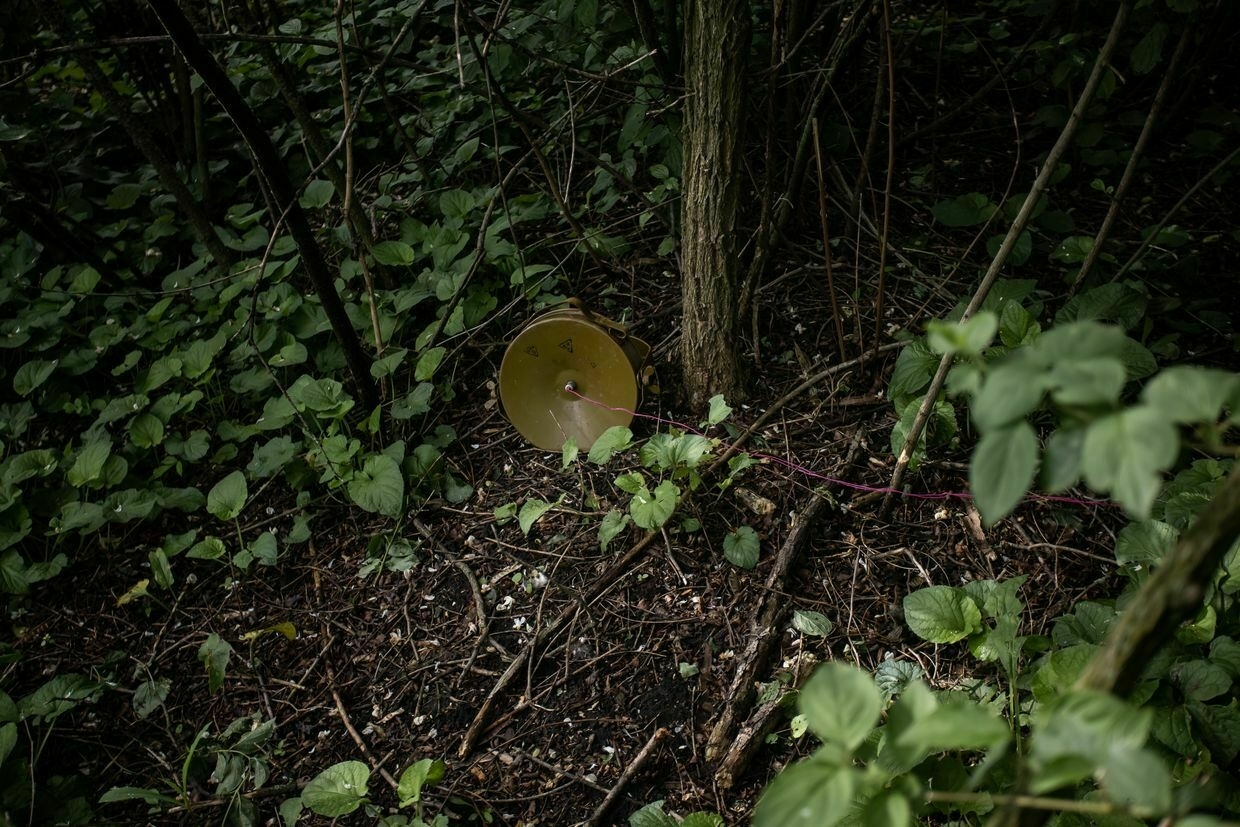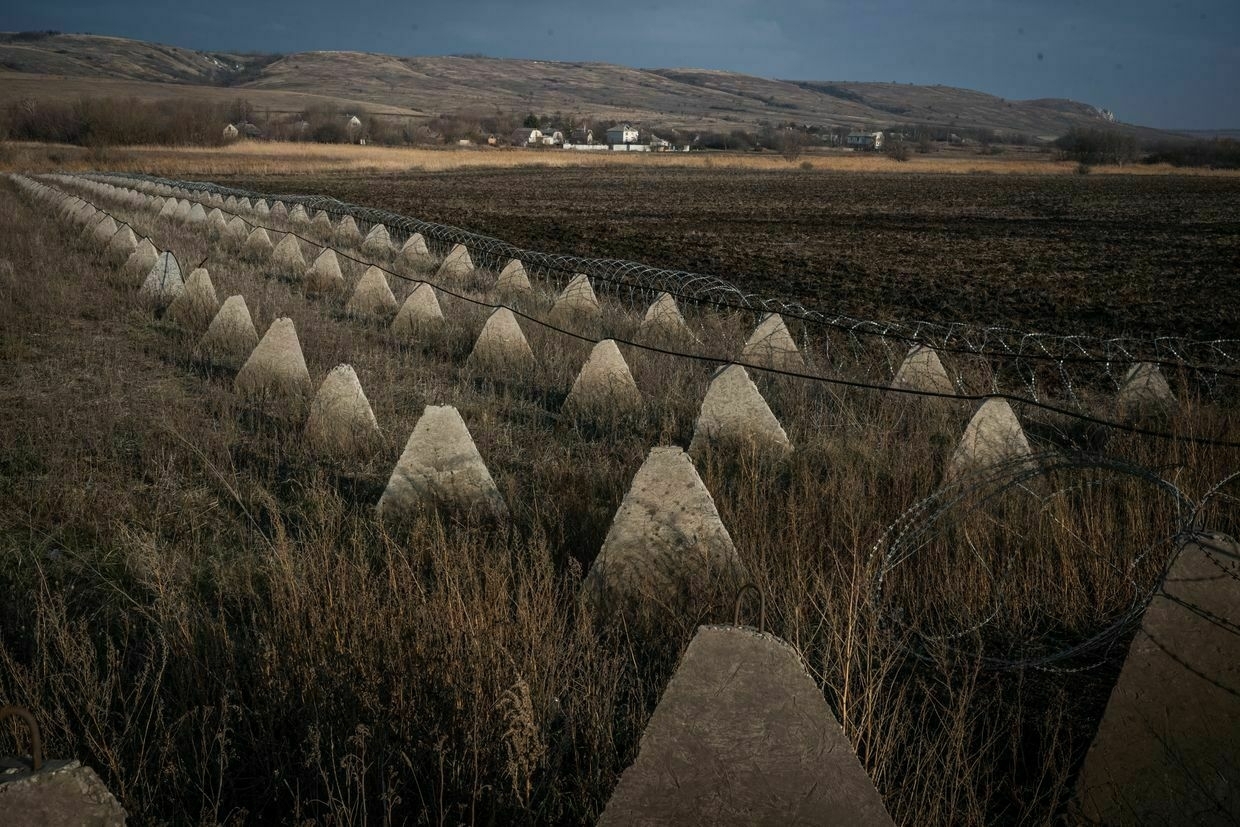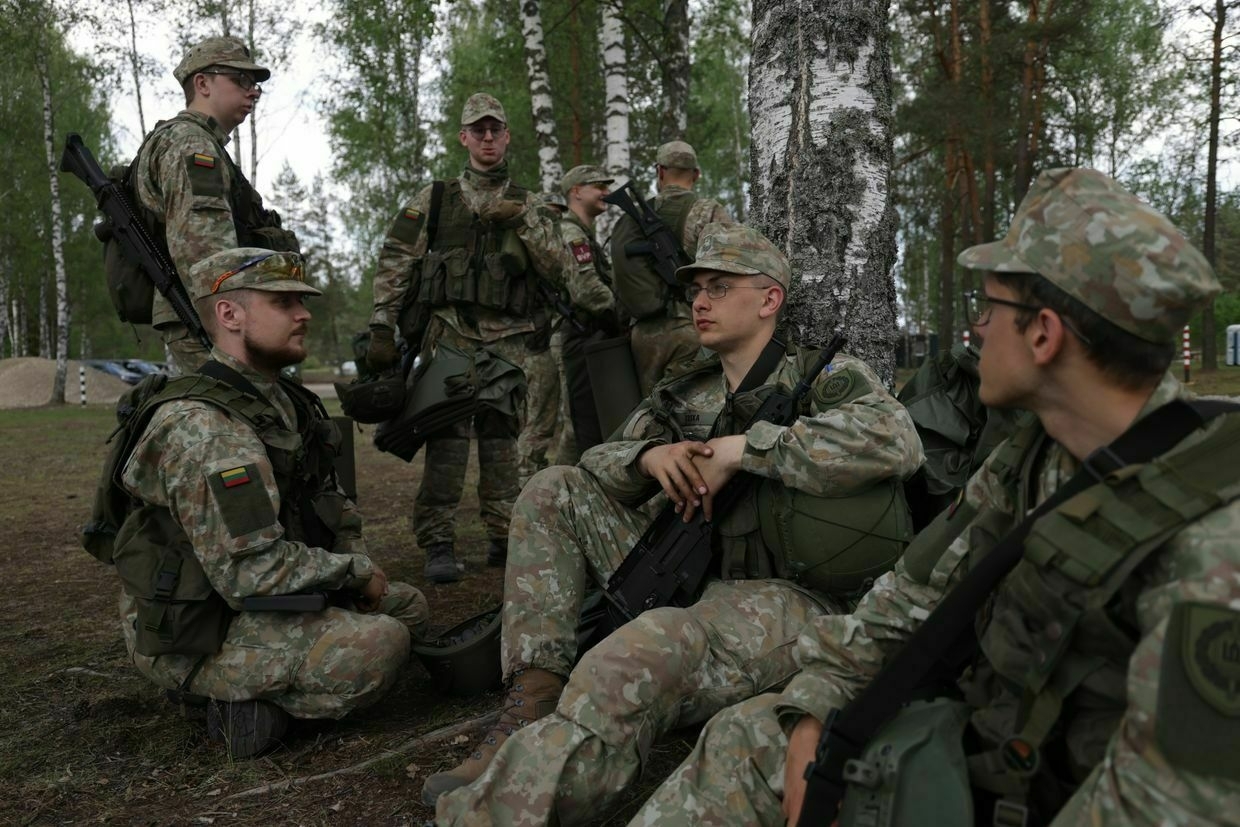
Ukraine looks to withdraw from a major international treaty on anti-personnel landmines to bolster its defense on the battlefield, where its troops are trying to hold off Russia’s intensifying offensive.
President Volodymyr Zelensky, on June 29, had requested that Ukraine withdraw from the 1997 Ottawa Treaty that banned the production and use of indiscriminate anti-personnel mines. Though acknowledging the “complexities” that Ukraine may face in exiting such a treaty during war, he stressed that these explosives are an irreplaceable tool in defending the country.
“Russia has never been a party to this treaty and uses anti-personnel mines with extreme cynicism,” Zelensky said in his address afterward.
Anti-personnel mines are highly controversial explosive devices that can be set off by small pressure, posing a grave long-term threat to civilians. Usually buried or concealed on the ground, they are used in warfare to incapacitate or kill the foe’s personnel.
Kyiv’s move to withdraw the Ottawa Treaty follows a similar action from countries neighboring Russia, such as Finland, the Baltic states, and Poland, who have announced their intention to withdraw or have already exited the treaty.
International observers such as Human Rights Watch are scrutinizing Ukraine’s decision to withdraw from the treaty, which the war-torn country signed in 2005, 17 years before the start of the all-out war.
“Given that Ukraine is in the midst of a war, this is a symbolic move aimed at giving Ukraine political cover to flagrantly violate long-standing prohibitions on developing, producing, and using anti-personnel mines,” said Mary Wareham, deputy director of the Crisis, Conflict and Arms Division at Human Rights Watch.
“It is important for Ukraine, especially in solidarity with the Baltic and Eastern European countries, which understand the threats from Russia.”
Citing Article 20 of the Ottawa Treaty, Human Rights Watch stressed that it takes half a year after the state submits a notice to the United Nations for the withdrawals to come into effect, and that it is not allowed to exit the treaty if the state is still in an armed conflict at the end of that period.

"Bringing back anti-personnel mines is a choice that risks causing even more suffering and casualties, over the short and long term," Wareham told the Kyiv Independent.
Refraining from commenting on "who lays what where" and the transfer of weapons between countries, U.K.-based demining nonprofit HALO Trust stressed that the treaty has been "instrumental in saving millions of people's lives."
Ukrainian lawmaker Roman Kostenko, who has pushed government institutions to withdraw from the treaty for the past six months, said the parliament would consider the exit from the treaty in mid-July. He doesn't expect there to be an obstacle to achieving parliamentary approval despite the initial hesitation in the earlier months.
"It is important for Ukraine, especially in solidarity with the Baltic and Eastern European countries, which understand the threats from Russia," Kostenko told the Kyiv Independent.
Contrary to Human Rights Watch, Kostenko said that he believes Ukraine can use the Vienna Convention on the Law of Treaties, which allows a country to withdraw from international agreements if circumstances change, as it is Russia that attacked Ukraine in 2014 and 2022.
Anti-personnel mines in warfare
Military experts said that anti-personnel mines, often fired from artillery systems or planted by sappers mechanically, help Ukraine inflict casualties on advancing Russian troops from afar. Already used in combat despite the treaty, the anti-personnel mines have made it more difficult for Russian troops to approach, especially well-protected positions.
Ruslan Gorbenko, a lawmaker from the ruling Servant of the People who regularly travels to the war-torn east and keeps in touch with the military, confirmed that Ukraine already uses anti-personnel mines as a necessary measure to defend against advancing Russian troops that also use them.
Gorbenko told the Kyiv Independent that Ukraine's move to withdraw from the Ottawa Treaty is "a logical decision at the official level," exempting Ukraine from the international obligations it has undertaken during peacetime.
Russia has never shown an intention to sign or abide by the treaty, making the banning of such weapons during the current war highly unlikely.
While Kostenko, secretary of the parliament's committee on national security, defense and intelligence, said he could not confirm Ukraine's usage of the small landmines, he said that it would allow Ukraine to officially produce the anti-personnel mines and to receive them from non-signatory countries, such as the U.S.
The Biden administration in 2024 approved the transfer of anti-personnel mines to Ukraine in a surprise move to help the country withstand an increasingly tough situation at the front.
Kostenko said that anti-personnel mines would help Ukraine improve fortification, together with engineering barriers, making it harder for Russian troops to approach Ukrainian positions.


Serhiy Hrabskyi, a retired Ukrainian colonel and military analyst, said anti-personnel mines are "purely defensive weapons" that are "critically dangerous for everyone" but necessary to help outnumbered Kyiv's troops grind down overwhelming Russian manpower.
"It is difficult to stop the enemy in a different way," Hrabskyi told the Kyiv Independent, stressing that Ukraine has no choice but to mine its own territory.
Russian troops have struggled to launch an offensive in some areas of Donetsk Oblast, such as the southern part between Pokrovsk and Kostiantynivka, despite the "massive troop usage," thanks to the landmines, including anti-personnel mines launched from a distance, according to Hrabskyi.
Ukraine's need for a large quantity of anti-personnel mines became clear when Russia switched its tactics and began relying heavily on direct charges, according to Serhiy Kuzan, co-founder and chairman of the local think tank Ukrainian Security and Cooperation Center.
Kuzan told the Kyiv Independent that he believes the official withdrawal would not affect the situation on the front in any way, since it is more of a diplomatic move rather than a practical one.
With Western capitals showing no pushback to the decision, international humanitarian organizations remain wary.
The International Committee of the Red Cross (ICRC) said it was "deeply concerned" by any steps that could increase the usage of anti-personnel mines, stressing that they have caused "terrible suffering for civilians all over the world."
"We call on all countries to stay committed to a world without anti-personnel mines and to keep strengthening the rules that protect people during war," Pat Griffiths, ICRC spokesperson in Ukraine, told the Kyiv Independent.
Not tied to Ukraine's withdrawal, Russia, however, has never shown an intention to sign or abide by the treaty, making the banning of such weapons during the current war highly unlikely.
 The Kyiv IndependentYuliia Taradiuk
The Kyiv IndependentYuliia Taradiuk
